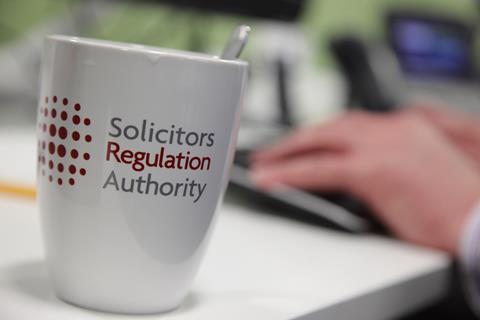The Solicitors Regulation Authority is seeking a 23% rise in its budget next year to help deal with a rapidly increasing burden of investigation work.
In its business plan for 2025/26, published yesterday, the watchdog said it is opening an average of 40% more investigations a month compared to a year ago, as reports of misconduct come flooding in.
Efficiency has improved to the point where 18% more cases are being concluded per month, it adds, but the scale and complexity of the caseload is now unmanageable without significant further investment.
The SRA proposes that its budget rise by £16.3m to £86.5m, and its component of the individual practising certificate fee from £164 to £190.
For 2025-26, the Law Society has already proposed a PC fee contribution of £37.5m, up from £36.8m in 2024-25.
Each individual’s total SRA payment will rise by 2.4% to £260: this is due to the compensation fund contribution coming down from £90 to £70. Each firm’s compensation fund contribution will also drop from £2,220 to £1,950 (still significantly higher than the £660 of 2023/24).

SRA chief executive Paul Philip said the legal market has changed rapidly and brought with it extra risks to consumers, increasing the regulator’s work and adding to the financial burden on solicitors. ‘We are seeing a big increase in reports of misconduct coming through the door, as well as a range of large, complex cases such as our Post Office Horizon scandal investigations,’ he said.
‘We’re investing in the capability to act faster and smarter – strengthening our use of data to spot problems earlier and taking appropriate action where needed.’
He stressed that the organisation has kept costs down in the last six years, with fees rising by an average of 2%. The latest budget plan follows months of discussions at board level: in February SRA chair Anna Bradley revealed proposals had been 'trimmed back several times’ already.
‘We remain committed to being efficient and focused, but the scale of new challenges means we need extra resource to continue protecting the public effectively and proportionately,’ added Philip.
The proposed budget increase is subject to consultation which runs to 19 June and will require Legal Services Board approval. The plan also confirms that the SRA will develop a programme of work on professional ethics and progress work on high-volume consumer claims.
The plan also confirms that the compensation fund will continue to be financed through a 50/50 split between individuals and firms. The SRA had been considering a shift to 70/30, making individuals pay a bigger share.
Law Society chief executive officer Ian Jeffery said the business plan 'must not be a plan for business as usual'.
'The independent investigation into the collapse of Axiom Ince and the Legal Services Board’s recent performance assessment of frontline regulators showed that the SRA faces multiple problems and as a result, must make significant changes to how it operates. The soon to be published report into the SRA’s regulatory actions leading up to the collapse of SSB Group may also identify areas for reform.
'While some increase in the SRA’s share of the practising certificate fee is to be expected, such a significant increase at a time when firms are already facing rising costs must be fully explained and justified. The SRA needs to be completely transparent on how this money will be invested and the outcomes achieved.
'The SRA needs to ensure it focuses on its core job if it is to regain public confidence and the trust of the profession it regulates.'
This article is now closed for comment.



























28 Readers' comments